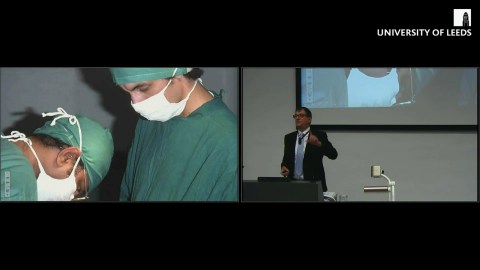To honor the life and legacy of Henrietta Lacks, this video highlights her impact on biomedical research and the efforts of Johns Hopkins Medicine to pay homage to her legacy. Learn more at:
Henrietta Lacks was an African-American woman who underwent treatment for an aggressive form of cervical cancer at Johns Hopkins Hospital in 1951. Despite receiving a high standard of medical treatment, Mrs. Lacks ultimately succumbed to this cancer at the young age of 31. However, her extraordinary cells—called “HeLa” from the first two letters of her first and last names—continued to reproduce in the laboratory. This was the first time in history that a human cell line was able to be reproduced in a laboratory setting; and it gave medical researchers the opportunity to improve the human condition by allowing them to better understand, treat, and prevent a wide range of diseases, including the development of the polio vaccine, cancer treatment protocols, AIDS research, and much more.
source









